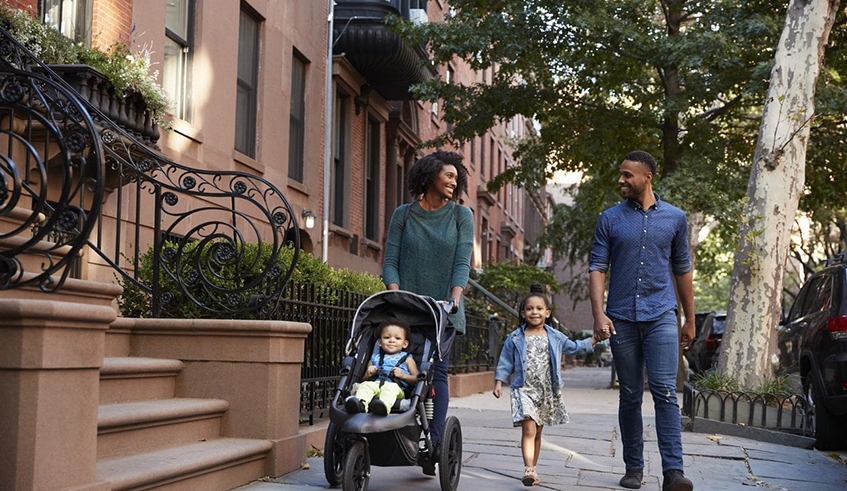

Society has for the past few decades redefined what a household is or should look like. The traditional way of building and raising a family is changing and values are fast straying.
Guaranteed love cannot be enacted and marriage made compulsory; the nature of modern families is fast changing and one of the leading wonders resulting from this, is absentee fathers.
According to the Rwanda Demographic and Health Survey 2014-15, the average Rwandan household has 4.3 members. Three in ten households are headed by women.
The Fifth Integrated Household Living Conditions Survey (EICV5 2016/17) also shows that 25% of households are headed by females, while 6% of households were headed by female in the absence of a male head (De facto female-headed households).
Worldwide, an estimated 24.7 million children (33%) live in absence of their biological father, according to the United States Census Bureau.
Issues such as divorce, teen pregnancy, among others, are often the foremost cause of single-motherhood. Among other issues, irresponsibility and insensitivity are often said about fathers who are not in their children’s lives.
Fatherlessness is indeed a worldwide phenomenon. But what if there are underlying issues that push some men into abandoning their children or families. Could society have a role in this? Women too?
During her Tedx Talk, ‘What representing men in divorce taught me about fatherhood’, Attorney Marilyn York, who owns Men’s Rights Family Law Firm, said that the main contributors to fatherlessness are divorce and out-of-wedlock births.
She says, whereas men parent differently than women, their influence is crucial in the development of their children.
"Most of us know motherhood brings with it a sixth and an unspoken bond to our children. But what about fathers? Even fathers feel insecure about this reality. Fathers too have a genetic bond and instinct about their children from infancy,” York said.
Data shows that fathers are vital and yet laws and society undervalue their importance, making it harder for them to be in their children’s lives. Even fathers underrate their own value, she says.
Historically, this maternal preference was solidified in the tender years doctrine, which mandated custody of children under the age of four be awarded to mothers.
York said the most significant thing that her career has taught her is, family court is one of the critical places where fathers are disadvantaged, and this hurts kids.
"When I began my practice and until ten years ago, the best my father clients could expect was every other weekend visitation and may be a dinner on the off week. While significant legal progress has been made, this long standing bias against fathers still occurs, in the enforcement of custody orders, in child support rulings, and it exists in paternity laws. All the while the number of kids growing up without dads continues to rise,” York pointed out.
Advocating for fathers isn’t about diminishing mothers
While children deserve both parents whenever possible, this crisis is specific to fathers. The occurrence of fatherlessness is epidemic, the effects are catastrophic, and the causes are male gender specific.
Timothy Muvunyi, a father-of-two, condemns fathers who neglect raising and being a part of their children’s lives.
He points out that in addition to missing out on paternal love, children who grow up without their fathers lack confidence, have social and emotional difficulties, and also find it hard building stable families.
He is, however, quick to add that what matters is to understand where these men are coming from. Criticising absentee fathers, even when you have the right to, doesn’t really make a change and this is what’s important mostly.
"It’s time to look at things from a different angle and see if things can change,” Muvunyi says.
Flavia Bushira, a wife and mother, points out how overwhelming this absentee father phenomenon is.
She is of the view that women and society in general should try and help men transition into their roles as fathers.
"Just like mothers find parenting hard, fathers experience the same. But because little attention is given to them, they barely have guidance on what to do as parents,” she says.
Why dads can’t be the dads they want to be
An article on The Conversation’s website shows that dads who are actively included in prenatal care form a stronger "father” identity for themselves and are good parents by virtually any measure. Yet, dads are often actively excluded from prenatal care.
Childbirth courses, similarly, often tell dads they should be supportive, but do little else to address the father’s role.
Fathers, like mothers, can experience postpartum depression and struggle with the transition to parenthood. Yet they seldom get enough support.
Failing to acknowledge the mental health of fathers can be problematic. Like depression in mothers, paternal depression has negative effects in early childhood and beyond, the article indicates.
Counsellor Jessica Kayitesi is of the view that since healthy parenting is that which involves fathers; mothers should endeavour to encourage their involvement.
"Most fathers often feel like ‘second-class citizens’ when it comes to parenting. They at times feel like they are not that relevant and the mother has got it all under control. This in the end makes them withdrawn and less involved,” she says.
"It is at times easier to be more critical of the lack of involvement of fathers, but what about we make an attempt to see and appreciate the different ways they could be contributing towards the raising of their children?”
Every bit of data we have tells us children need their fathers. The law, its application, and society at large, disfavour fathers, York states.
So what can you do? We are the change makers, all of us. If you are the father, make the effort, do everything you can to be in your children’s daily lives. If you are the mother, encourage and facilitate the relationship between your children and their father instead of trying to interfere or control it. If you’re a child, spend time with your dad, ask him to do something, seek his advice and guidance, she notes.
"If you’re an employer, grant the fathers you employ the ability to be at their children’s events, to help in their schools, to take sick days to care for their kids. If you work in the legal field, help us continue to progress, change the laws, and ensure that they are enforced to protect fathers and their children. The importance of this pursuit cannot be overstated,” York said.


